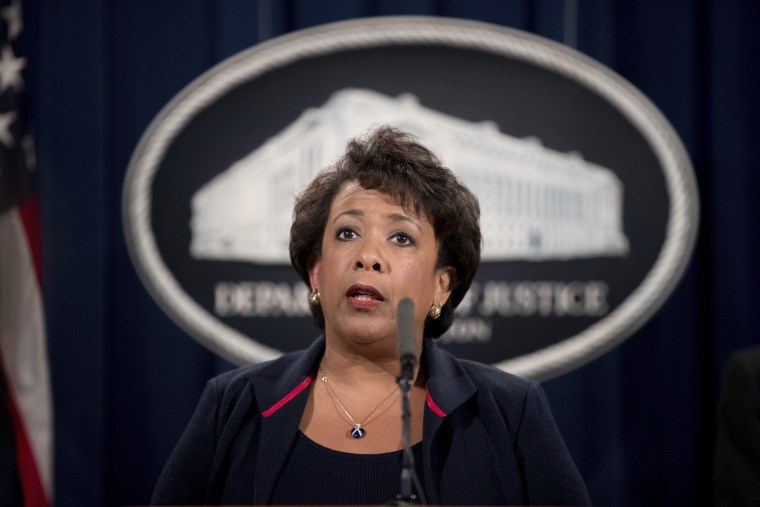In June 2016, Bill Clinton had a chat on a tarmac with then-Attorney General Loretta Lynch, and according to everyone involved, it was a fairly brief and inconsequential social interaction. Such conversations are not uncommon when prominent political figures are in the same place at the same time.
But as Politico reported at the time, then-candidate Donald Trump, among other Republicans, went a little berserk during a radio interview in response to the "controversy."
"It is an amazing thing," Trump said. "I heard about it last night. They actually went on to the plane as I understand it. That's terrible. And it was really a sneak. It was really something that they didn't want publicized as I understand it. Wow, I just think it's so terrible, I think it's so horrible."
Though the then-presumptive Republican nominee didn't really explain why, exactly, he found the social interaction so upsetting, Trump nevertheless called the matter one of "the biggest" stories of 2016, adding that that the issue was "massive" and "amazing."
He wasn't alone. Much of the political world was hair-on-fire outraged about the mere possibility of political interference involving the nation's chief law enforcement official. As regular readers may recall, Americans were told it was wildly inappropriate for the former president to engage the sitting attorney general in conversation.
Why? Because according to those who saw the tarmac chat as scandalous, Bill Clinton might've used the opportunity to pressure a top Justice Department official, which could've had the effect of influencing the direction of prosecutorial decisions.
There was no evidence of any informal lobbying -- by all accounts Clinton and Lynch spoke about grandchildren and golf -- but that didn't matter. The mere possibility was widely seen as scandalous. Or as Trump argued at the time, it was "terrible," "horrible," "massive," and "amazing."
Forty-two months later, we've seen a sitting Republican president have all kinds of conversations with Justice Department officials -- even those overseeing investigations into his White House -- just as we've also seen Trump forge a partnership with his handpicked attorney general, who's now intervening in cases involving convicted felons close to the president.
Everyone who took that story seriously, or at least pretended to, should face a follow-up question now: are Trump's efforts to politicize the Justice Department as outrageous as the June 2016 tarmac chat?


